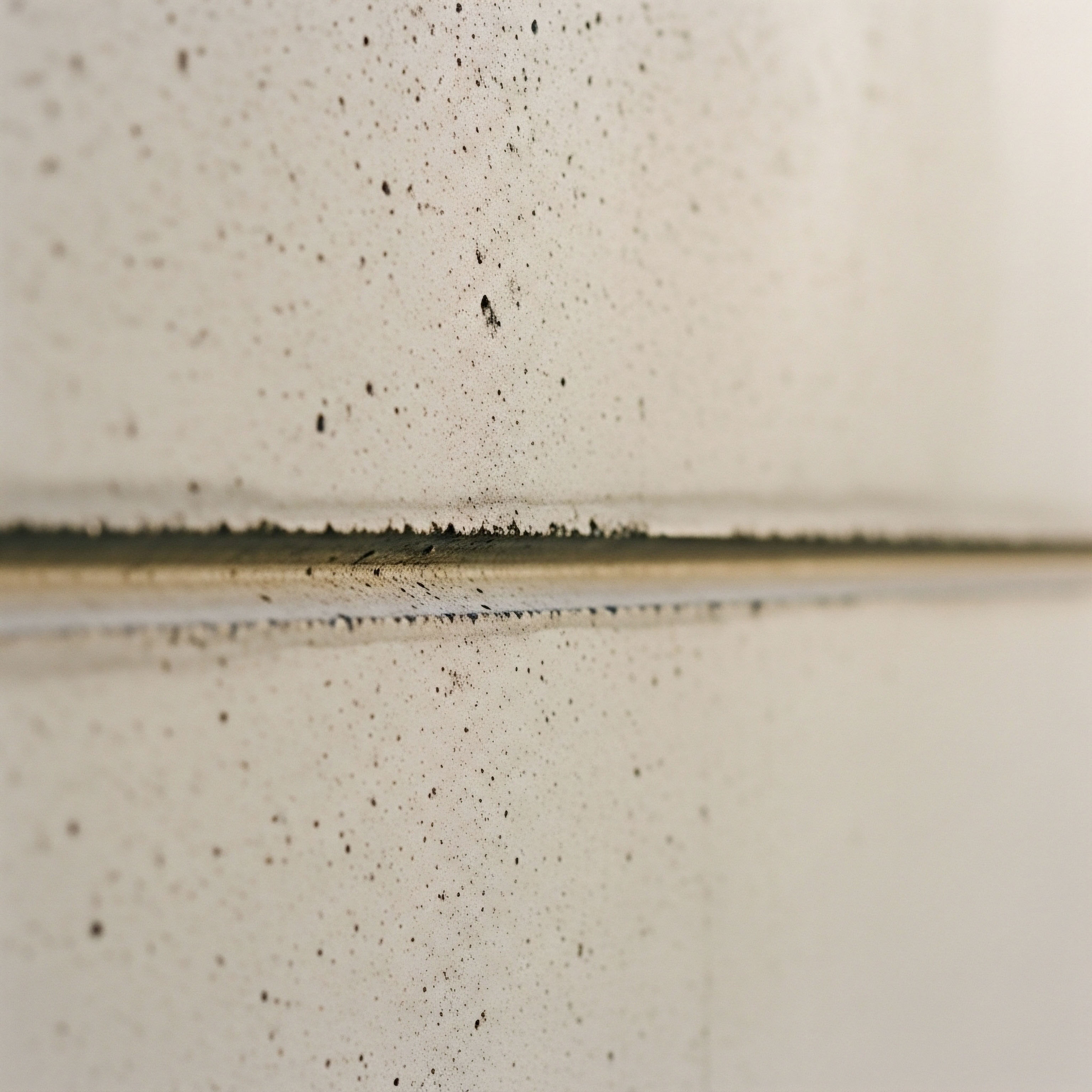

Your Circadian Code to Unbound Energy
A persistent feeling of diminished drive, a lack of vibrancy, or a noticeable shift in physical output often signals an internal system operating below its design specifications. Many high-performing individuals recognize this sensation ∞ a subtle yet undeniable whisper of decline, a departure from their prime performance. You stand at a juncture where acknowledging these shifts becomes the genesis of profound optimization. Your desire to reclaim youthful vigor and sharper mental clarity represents a powerful, inherent drive.
Consider your internal clock, the master regulator of every cellular function. This intricate system, known as the circadian rhythm, dictates everything from hormone secretion to cellular repair. Light exposure, especially after sundown, represents a disruptive signal to this profound biological orchestration. Our ancestors evolved under natural light cycles; modern life, conversely, inundates us with artificial illumination long into the night, blurring the crucial distinction between day and night.
This chronic exposure to inappropriate light patterns disorients your body’s innate timing mechanisms. Your pineal gland, programmed to commence melatonin production as darkness descends, receives conflicting messages. Melatonin, often referred to as the hormone of darkness, orchestrates sleep initiation and supports deep restorative cycles. Its suppression by ambient light directly impedes your ability to enter the most recuperative phases of sleep.
Optimal darkness signals cellular regeneration and hormonal recalibration.
The ramifications extend far beyond mere tiredness. Compromised sleep translates into systemic inflammation, reduced growth hormone secretion ∞ a key player in muscle repair and fat metabolism ∞ and dysregulated cortisol patterns. Cortisol, your stress hormone, ideally peaks in the morning and declines throughout the day. Disrupting your nocturnal environment forces elevated cortisol levels during periods meant for rest, accelerating biological aging processes and hindering recovery.
Furthermore, a disrupted circadian rhythm impacts metabolic health. Insulin sensitivity diminishes, increasing the propensity for fat storage. Your immune system, relying on restorative sleep for robust function, loses its edge. Cognitive processing slows, and decision-making capabilities wane. The quest for peak physical and mental performance demands uncompromising attention to sleep integrity.
Reclaiming control over your light environment provides a direct pathway to recalibrating these fundamental biological systems. This simple, yet potent, adjustment sets the stage for a cascading series of positive adaptations throughout your body. Preparing your sleep sanctuary represents an active declaration of biological sovereignty.
It creates the conditions for your hormones to synchronize, your cells to regenerate, and your mind to consolidate knowledge and creativity. This foundational step establishes the baseline for all subsequent wellness protocols, allowing your physiology to perform at its peak.


Precision Darkroom Mechanics
Creating an optimal sleep environment demands a methodical, engineering-like approach. Your bedroom represents a critical control chamber for biological function, requiring careful calibration of light, temperature, and sound. The ultimate objective involves eliminating all unwanted light sources from your sleeping space. Achieving complete darkness ensures your body receives the unequivocal signal for melatonin production and deep restorative sleep.

Sealing the Light Leaks
Commence your darkroom construction with light blockage. Invest in high-quality blackout curtains or blinds. These items represent the first line of defense against ambient external light. Ensure the curtains extend beyond the window frame, minimizing light leakage around the edges. Velcro strips or light-blocking adhesive tape applied to the perimeter can create an impermeable seal. Inspect your room during daylight hours, identifying any pinpricks or slivers of light penetrating the space. Every photon counts.
Small electronic devices often emit surprisingly disruptive light. Indicators on chargers, power strips, and media players, even if seemingly dim, can interfere with melatonin synthesis. Cover these lights with electrical tape or use dedicated light-blocking stickers. Consider unplugging devices or placing them inside drawers before bed. This level of meticulousness distinguishes mere sleep attempts from dedicated biological optimization.
Beyond external light, internal light sources demand attention. Avoid turning on overhead lights during nighttime bathroom visits. Install low-wattage, red-spectrum nightlights in hallways or bathrooms. Red light exhibits the least impact on melatonin production compared to blue or green wavelengths. Such strategic lighting allows navigation without disrupting your crucial nocturnal physiology.

Implementing Light Hygiene Protocols
An hour or two before your intended sleep time, initiate a wind-down routine that incorporates strict light hygiene. Dim all lights in your living space. Switch from bright overhead illumination to lamps with warm, low-intensity bulbs. These preparations signal to your brain that the day is concluding. Artificial light exposure, particularly from screens, represents a potent circadian disruptor.
Blue light, emitted profusely by smartphones, tablets, computers, and televisions, actively suppresses melatonin. Implementing a digital curfew becomes an imperative. Power down all screens at least 60-90 minutes before bed. If professional demands necessitate screen use, employ blue-light-blocking glasses. High-quality amber or red-tinted lenses effectively filter out the problematic wavelengths, minimizing their impact on your internal clock.
Consider using a sunrise alarm clock. These devices gradually increase light exposure in the morning, mimicking a natural sunrise. This gentle awakening method supports a smoother transition from sleep, promoting a natural cortisol awakening response, and reinforcing your circadian rhythm. Abrupt, loud alarms can induce a stress response, disrupting the delicate balance of morning hormones.
Below appears a systematic guide for optimizing your nocturnal environment:
-
Install opaque blackout curtains or blinds, ensuring complete window coverage. Seal any gaps around the edges using adhesive strips or Velcro.
-
Eliminate all light-emitting diodes (LEDs) and indicator lights from electronics in your bedroom. Utilize electrical tape or dedicated light-blocking covers.
-
Minimize bright light exposure in the hours preceding sleep. Dim household lights and transition to warmer, lower-intensity bulbs.
-
Implement a strict digital curfew, ceasing all screen time 60 to 90 minutes before your planned bedtime. Wear blue-light-filtering glasses if unavoidable screen use occurs.
-
Employ an eye mask if complete room darkness remains unachievable. Opt for masks that provide full light blockage without pressure on your eyes.
-
Utilize red-light-emitting devices for any necessary illumination during the night, such as in bathrooms or hallways. Avoid standard white or blue-spectrum lights.
-
Consider a sunrise alarm clock for a gentle, physiologically aligned morning awakening.
Beyond light, temperature plays a significant role. A cooler sleeping environment supports restorative sleep. Aim for a bedroom temperature between 60-67 degrees Fahrenheit (15-19 degrees Celsius). Your body’s core temperature naturally dips during sleep; a cooler room facilitates this process. Slight variations exist among individuals, yet a consistent, cooler setting generally supports sleep quality.
Sound control also holds importance. External noises or internal disturbances disrupt sleep architecture, preventing progression into deeper, recuperative sleep stages. Consider using earplugs or a white noise machine to mask unpredictable sounds. Consistent, low-level white noise can create a tranquil auditory backdrop, promoting uninterrupted rest.
Mastering your sleep environment represents a direct investment in hormonal harmony.
Each aspect of your sleep environment contributes to a synergistic effect. Precision in managing light, temperature, and sound amplifies your body’s natural capacity for repair and regeneration. This meticulous preparation positions you for profound physiological restoration. Such deliberate control transforms your bedroom into a sanctuary, a chamber dedicated to your biological recalibration, facilitating the deepest, most restorative sleep possible.


Activating Your Performance Cycle
Understanding the profound biological impact of darkness naturally prompts the question ∞ when does this optimization become relevant for you? The answer proves immediate and universally applicable. Any individual seeking to elevate their cognitive function, enhance physical recovery, improve body composition, or simply reclaim their peak vitality stands to gain substantially. If you experience persistent morning grogginess, unexplained fatigue, or a plateau in your fitness progression, your sleep environment likely requires an audit.
Initiating a darkroom protocol offers rapid returns. Many individuals report noticeable improvements in sleep quality within the first few nights. Deeper sleep cycles lead to waking feeling refreshed, a clear departure from the sensation of dragging oneself out of bed. This initial shift marks the beginning of a cascading series of positive adaptations.
Within weeks, you can anticipate more tangible physiological shifts. Hormonal regulation begins to recalibrate. Optimized melatonin production supports balanced cortisol levels, particularly during the critical overnight repair phase. For those monitoring biometric data, you may observe improvements in heart rate variability (HRV), an indicator of autonomic nervous system health and recovery capacity. Body composition gains become more attainable as growth hormone release is maximized, supporting fat metabolism and lean muscle maintenance.
Longer-term adherence, over months, cements these gains into foundational physiological enhancements. Your body adapts to the consistent, high-quality sleep signals, optimizing cellular repair pathways, brain waste clearance via the glymphatic system, and overall systemic resilience. Chronic inflammation levels subside, leading to improvements in joint health, skin vibrancy, and overall aesthetic quality.
Your mental acuity sharpens, decision-making becomes more precise, and emotional regulation exhibits greater stability. This disciplined approach extends beyond mere symptom management; it constitutes a proactive strategy for slowing the biological aging process and fortifying your overall health.
This approach becomes particularly pertinent for those navigating significant life transitions or seeking to sustain high-performance trajectories. Athletes aiming for superior recovery, executives demanding peak cognitive output, or anyone committed to extended longevity will discover this foundational sleep optimization strategy as an indispensable tool.
It provides a direct channel to reclaim control over your biological output, transforming aspirations into tangible realities. The time to implement these protocols is now, setting the stage for a future of sustained vitality and elevated performance.

Beyond the Horizon of Human Capacity
You possess the power to architect your biological reality. The principles of sleep optimization, particularly the mastery of your nocturnal light environment, stand as a fundamental pillar. This pursuit represents more than a routine; it is a declaration of intent, a commitment to peak performance and enduring vitality.
As Dr. Peter Attia often observes, longevity hinges upon a complex interplay of factors, with sleep constituting an underestimated yet paramount component. Your dedication to a truly dark room moves beyond simple comfort; it aligns your deepest biological rhythms with the ancient programming of your physiology. This deliberate choice enables profound restorative processes, preparing your body and mind for sustained excellence.
Embrace this active role in shaping your biological destiny. The path to an optimized existence starts with the precise control of your environment, transforming your nightly rest into a strategic advantage.



